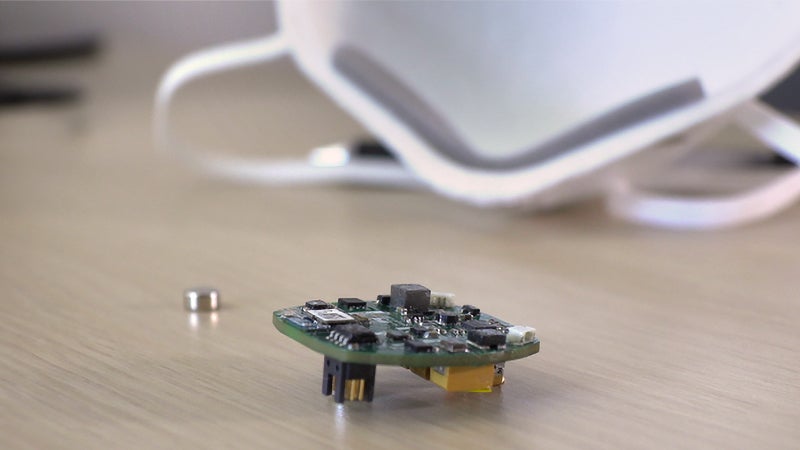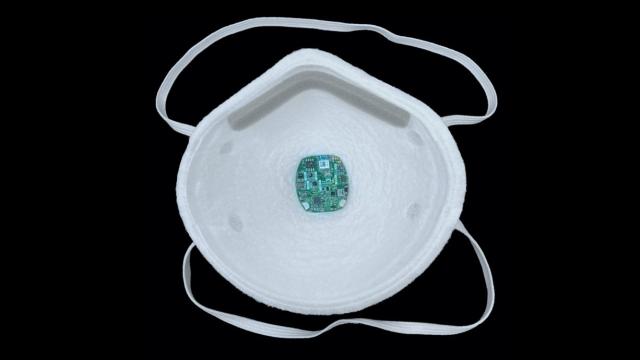Face masks are only effective as long as they provide a proper fit around the wearer’s mouth and nose, so to help ensure a mask is always doing its job properly, even at the end of a long shift, engineers at Northwestern University have designed a smart mask for healthcare workers featuring a smart sensor that can automatically detect leaks and other medical concerns.
After almost two years of a global pandemic, there hasn’t actually been much innovation when it comes to face masks. Companies like Razer have tried their hand at turning face masks into LED-packed glowing accessories, but while the company revealed a pro version of its Zephyr mask at CES 2022 last week, it later admitted the mask doesn’t actually use N95-grade filters, making it a poor option in the time of Omicron.
Engineers at Northwestern University have taken a different approach to upgrade face masks. They have designed and built a small electronic module packed with sensors that attach to the inside of a standard medical-grade N95 mask using magnets to ensure the upgrade doesn’t affect the performance of the mask in any way. The current version of the module is powered by a battery that needs to be regularly charged, but its creators are optimistic that it could eventually be upgraded to harness heat, and even the wearer’s breathing motions, to recharge itself and extend the battery life to weeks on end. The project and the hardware specs have been released as open-source info in order to encourage others to tinker and further improve its design.

We don’t necessarily need things like smart lights, smart appliances, and even smart homes, so do we really need smart masks? Most of us don’t, but medical professionals working 12-hour shifts and wearing the same mask all day long face unique pandemic challenges. Medical staff usually undergo fit tests to ensure the masks they wear all day provide a proper seal, but it’s a long 20-minute procedure, and not something healthcare workers have time to perform frequently. The FaceBit module can’t replace the fit test, but it can detect if a mask has become loose at a later point, either by using motion sensors to detect when a mask was inadvertently bumped and alerting the wearer who may not have noticed or by detecting a drop in airflow resistance which could indicate a leak has developed.
Monitoring a mask’s proper fit is reason enough to justify the use of the FaceBit module, but its sensors can also turn a face mask into a health tracker too. Respiratory rates can be constantly monitored, while ultra-sensitive motion sensors can actually detect the subtle movement of the head every time a wearer’s heart beats, providing useful health metrics that can be monitored by a connected app on a mobile device.
The collected data can then be analysed and used to provide helpful suggestions to users such as going for a walk or practicing breathing exercises to reduce detected stress, or when it’s time to replace their mask that’s been worn for a recommended time period. The FaceBit’s creators even suggest that hospitals and medical centres could use the collected health data to keep tabs on healthcare workers who may be especially struggling under the added load of the pandemic in order to provide some needed rest before they completely burn out and walk away, further exasperating staffing issues.
Before the FaceBit can be rolled out en masse, however, it still needs to undergo clinical trials and further validation to ensure it’s as effective a solution as the engineers behind it claim. But hopefully, this can be expedited given the open-source approach, allowing other engineers and researchers from all over the world to contribute to the project and deliver an effective solution sooner rather than later.
